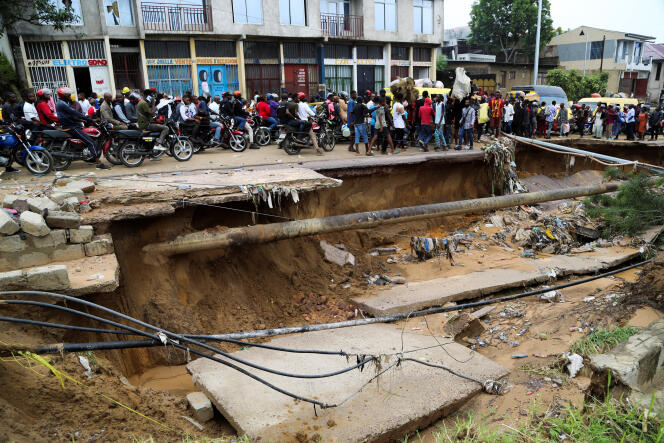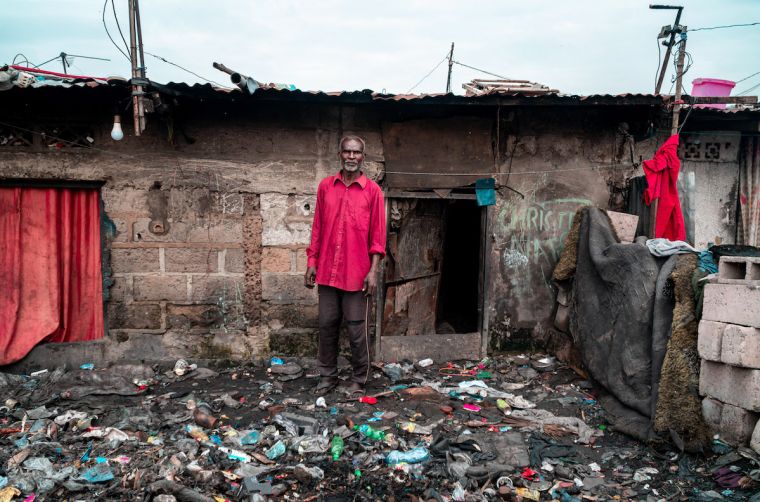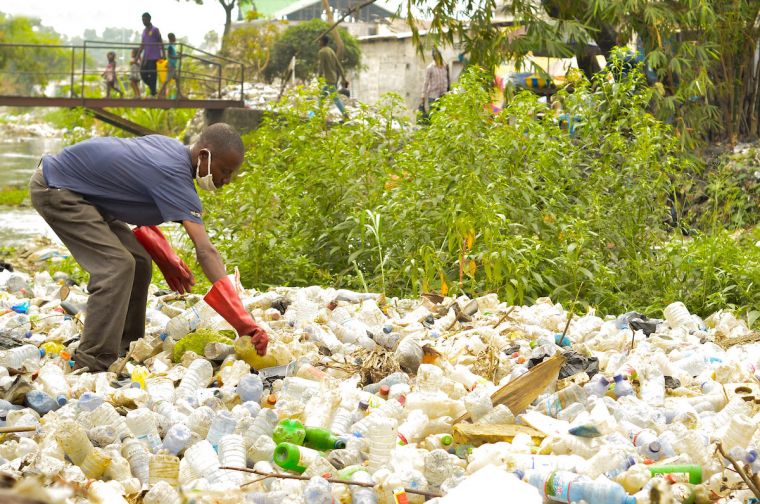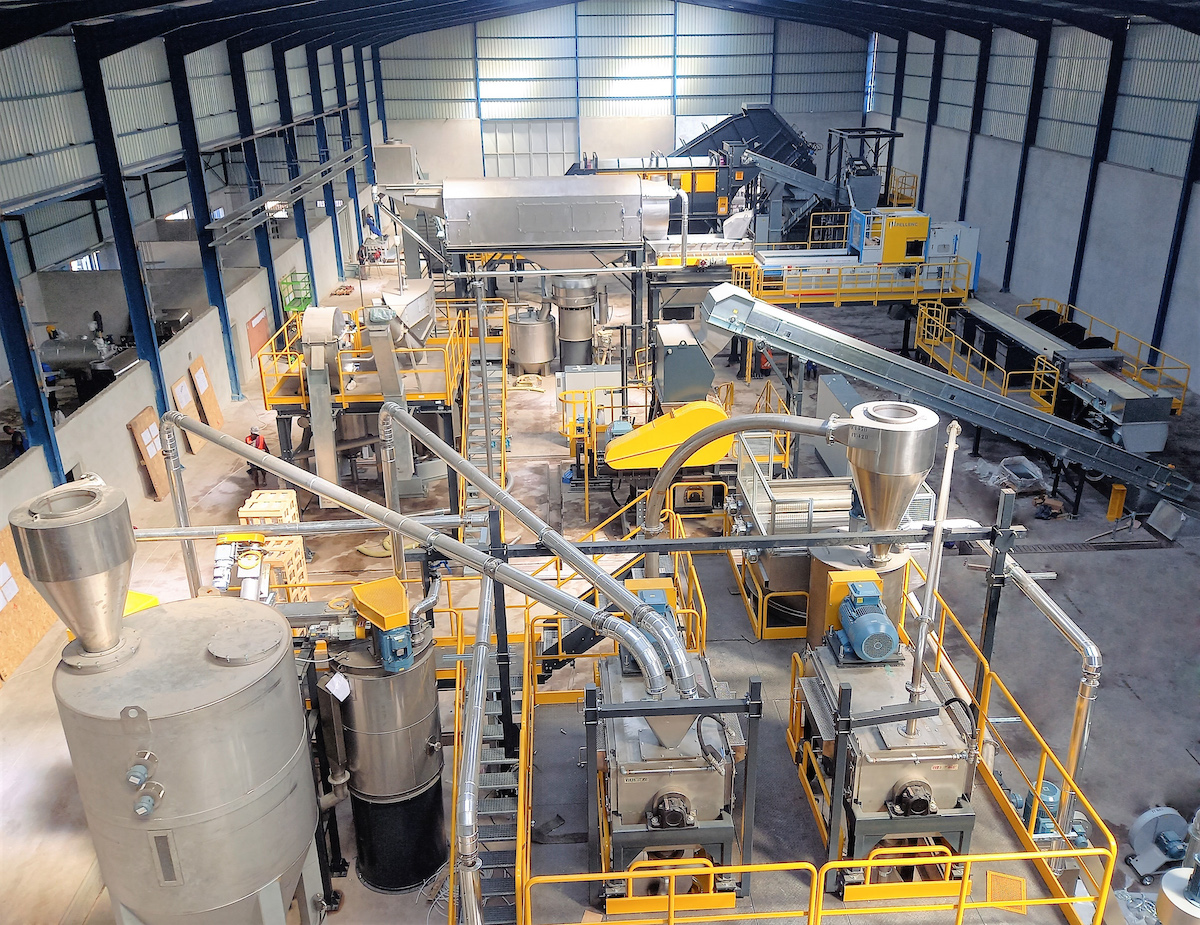- hot-spots
- plastic pollution
- Democratic Republic of the Congo
- Plastic waste in Kinshasa river, Democratic Republic of the Congo

Plastic waste in Kinshasa river, Democratic Republic of the Congo
Democratic Republic of the Congo
last update:
10 months agoProblems
Kinshasa has been reduced to rubbish heaps and rivers full of plastic bottles.
A teeming city of at least 12 million people, the capital of the Democratic Republic of Congo is notorious for heaps of garbage and rivers choked by plastic bottles. So much so that its nickname “Kin the beautiful” has turned to “Kin the trash can”. The Congo River is vital for the survival of people in DRC's capital Kinshasa. But the river and its tributaries are drowning in pollution. Plastic bottles line the banks and float in the water. When it does not pile up along the roads or in wild dumps, the garbage ends up in the city's gutters, streams and rivers, forming compact piles. Non-degradable garbage obstructs the passage of water to the point that in some neighborhoods, "the water is up to your knees". In the city of Kinshasa, breweries, producers of soft drinks and packaged water, pharmaceutical factories and several other companies provide more and more bottles and another plastic packaging. Jeannette Bosingizi, the coordinator of the NGO Logos Premier, which works to protect the environment, is worried that the soil is becoming "unproductive" because of the infiltration of plastic "which takes five centuries to degrade." Her fears go even further: "The Inga electric dam is located on the Congo River. And if plastic bottles enter its turbines, will we still have power? And if we can no longer navigate the river, will Kinshasa still be able to receive food from other provinces by the river?
Solutions
Attempt to clean up the city.
Author: Le Monde
The government is now emphasizing recycling and recovery of all types of plastic waste.
Gallery
5Timelines
2023
February
An OK Plast factory in Kinshasa, Democratic Republic of Congo, installed equipment from SOREMA and Starlinger in a recently built PET bottle recycling facility. SOREMA provided the sorting, grinding and washing stages, and Starlinger provided the pelletizing line. The line is controlled remotely using the Sorema-Scada 4.0 digital monitoring system. The OK Plast facility will recycle about 50 tons of plastics daily from Kinshasa. It has a production capacity of 1.1 metric tons per hour of washed RPET flakes for food packaging applications. “The plant has been successfully commissioned and is another step in the continued expansion of recycling in Africa, helping to solve the plastic waste problem and providing new job opportunities for local communities,” a press release stated. The plant gets feedstock from a series of collection points in Kinshasa. After the material comes in, it is automatically fed into a pre-washing and de-labeling unit, followed by wet grinding, hot washing, flotation and rinsing and drying. The line has color and material detectors for both bottles and flakes for two stages of sorting. After grinding and sorting by color, the flakes are transported to a Starlinger recoSTAR PET iV+ plant to be processed into pellets.
2022
In NovemberWith the return of rainfall, the accumulating waste has been causing severe flooding in the Congolese capital since.
In April, public service delegation contract were signed with companie Clean Plast specializing in the collection, recycling and recovery of all types of plastic waste.
2021
In January , Gentiny Ngobila, governor of the city of Kinshasa, signed a decree reiterating injunctions and stipulating that it is "formally forbidden to throw plastic on the public highway."
2020
Public service delegation contract were signed with companie OK Plast specializing in the collection, recycling and recovery of all types of plastic waste.
2019
In October, President Felix Tshisekedi launched “Kin Bopeto” (Clean Kinshasa). Since then, only a few garbage cans have been installed in some neighbourhoods of Kinshasa, where 9,000 tons of waste are produced daily, according to the city council.
2015
From 2008 to August of this year, the EU had injected $1 million a month into a project to dispose of household waste.



